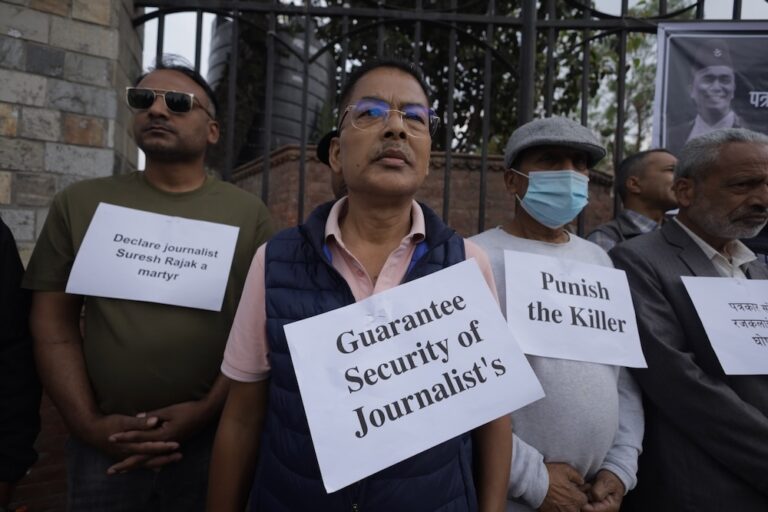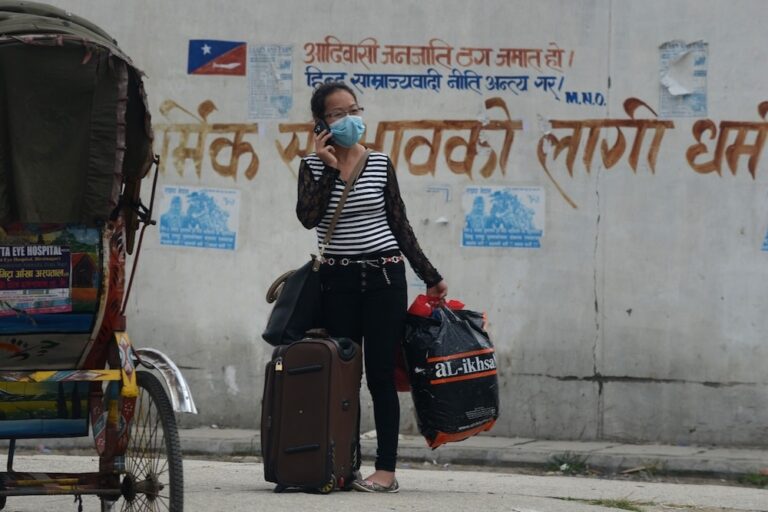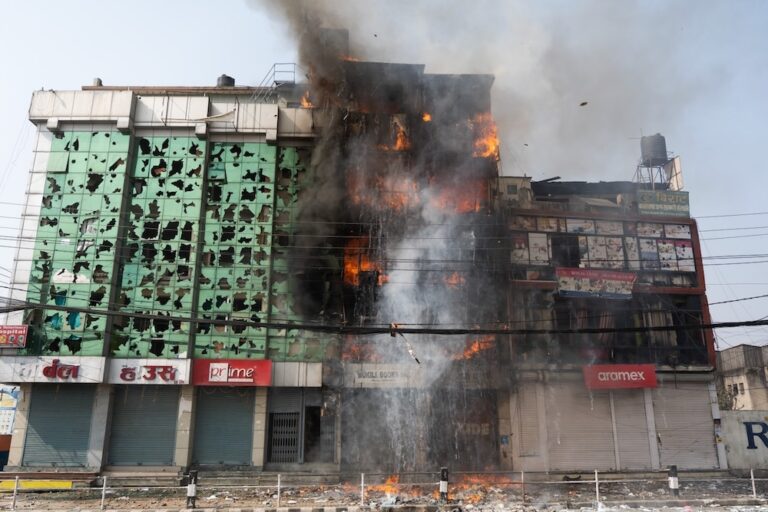(CEHURDES/IFEX) – CEHURDES, a Kathmandu-based freedom of expression monitoring group, condemns the arrests of over one hundred political leaders, human rights activists and a senior journalist on 19 January 2006. In early morning raids, Nepal police arrested dozens of opposition leaders, student and youth activists, senior civil society leaders, human rights activists and a senior […]
(CEHURDES/IFEX) – CEHURDES, a Kathmandu-based freedom of expression monitoring group, condemns the arrests of over one hundred political leaders, human rights activists and a senior journalist on 19 January 2006.
In early morning raids, Nepal police arrested dozens of opposition leaders, student and youth activists, senior civil society leaders, human rights activists and a senior journalist. Top opposition leader G.P. Koirala has been placed under house arrest while another opposition leader, Madhav Kumar Nepal, is said to be under surveillance. Those arrested include noted rights activist, Krishna Pahadi, professor Dr. Mathura Prasad Shrestha, pro-democracy activists Dr. Devendra Raj Panday, Nilamber Acharya and Shyam Shrestha, the editor of the pro-left monthly “Mulyankan”.
According to rights groups, they are being detained at police barracks in Kathmandu and Bhaktapur districts.
The latest arrests came a day before the peaceful protest rallies and mass meetings planned by the seven-party opposition alliance that is protesting the February 2005 royal takeover and calling for restoration of peace and democracy in the country.
The royal government has been imposing an overnight curfew in the capital, Kathmandu, and other parts of the country since 17 January and has imposed a ban on peaceful mass meetings, rallies, sit-ins, etc., in the capital until further notice.
CEHURDES condemns these arrests, carried out on flimsy pretexts, and demands immediate release of all those detained. CEHURDES believes that these arrests are illegal and unconstitutional in nature and reflect the government’s authoritarian tendencies.
CEHURDES also urges the government to immediately lift all prohibitions on peaceful assembly and mass meetings. Such prohibitions are against the Universal Declaration of Human Rights, International Covenant on Civil and Political Rights (ICCPR), to which Nepal is a party, and freedoms guaranteed by the country’s constitution.
CEHURDES is also concerned about media reports that the royal government is preparing to issue an ordinance to establish the so-called Broadcasting Authority and revise license and renewal fees of FM radio stations in the country upwards, making it impossible for them to continue their operations.
The government’s reported plans have been made public at a time when the Supreme Court has temporarily stopped the government-imposed ban on broadcast of news and current affairs programmes on the FM radio stations.
We call upon the government not to pursue any move that restricts the right to information of Nepalese citizens and is in direct contravention of the court orders and fundamental law of the land.


